Low-emission rice production is a top concern of Vietnam's agricultural sector. According to Mr. Le Thanh Tung, Permanent Vice President and General Secretary of the Vietnam Rice Industry Association, the Project of 1 million hectares of high-quality, low-emission rice associated with green growth in the Mekong Delta, has the full name of "Project for sustainable development of 1 million hectares of high-quality, low-emission rice associated with green growth in the Mekong Delta by 2030". The name of the Project shows that the drafting agencies attach great importance to reducing emissions in rice production, high quality must be associated with low emissions.
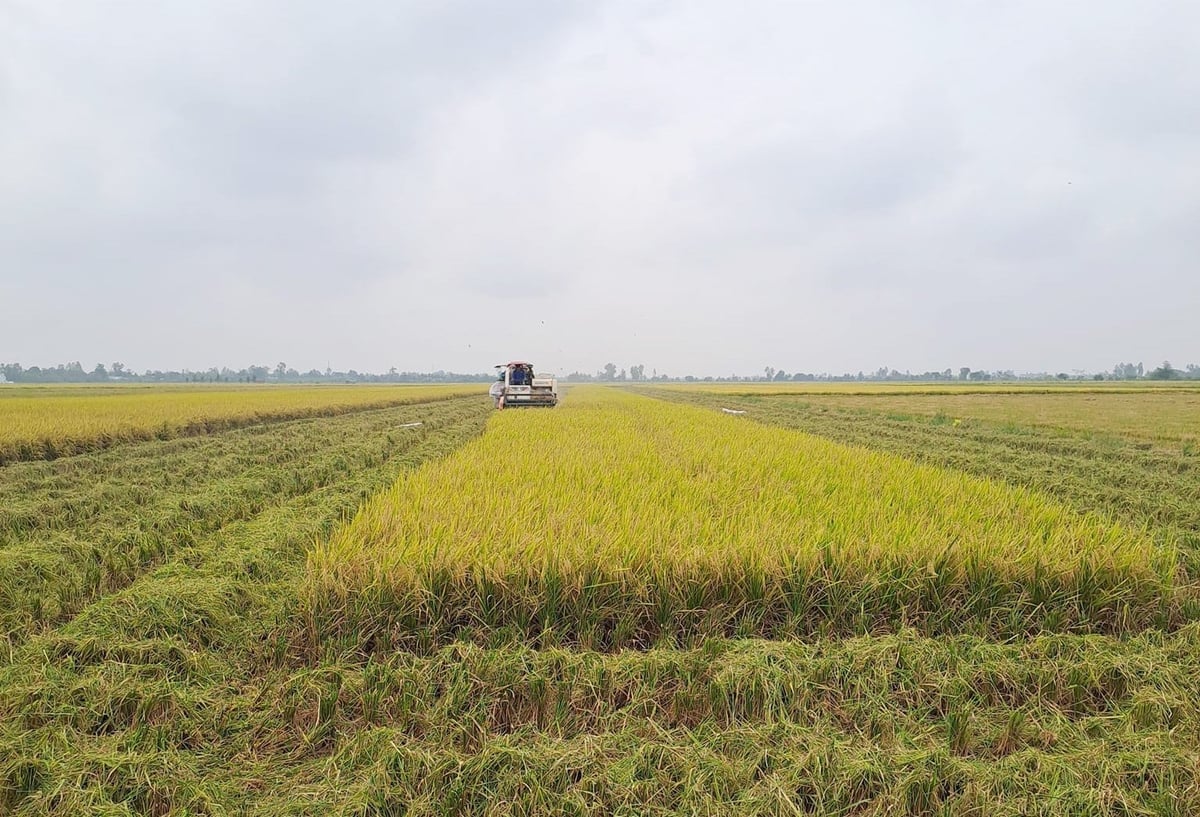
Rice production is the largest emitter in agriculture. Photo: Minh Sang .
The tradition of wet rice production in Vietnam has formed the habit of farmers leaving water in the fields all year round. Previously, leaving water like that did not affect rice productivity. However, in the context of rice production being under pressure from diseases and the resistance of rice plants to climate change, leaving water in the fields all year round is leading to health problems for the rice plants.
In particular, as Vietnam is implementing its Net Zero commitment by 2050, the habit of regularly flooding rice fields will lead to more methane emissions, because the wetland environment, with its characteristic anaerobic conditions, creates a favorable environment for the decomposition of organic matter and the release of methane by the activity of methanogenic bacteria.
Mr. Le Thanh Tung said that regarding emissions in rice production, there are three main causes: using too much inorganic fertilizer (causing nitrite emissions), burning straw (emitting CO2) and methane emissions due to flooded land.
Emissions from heavy inorganic fertilizer application can be reduced by reducing the amount of fertilizer used. Emissions from burning straw in the fields can also be reduced by removing straw from the fields to use as raw material for other production activities or during the rainy season when farmers cannot burn straw.
The most difficult thing is to reduce methane emissions in rice production, because it is necessary to apply the method of alternating flooding and drying to avoid methane gas generation in the soil and leading to this gas emission. To apply alternating flooding and drying, there must be a complete in-field irrigation system. This system must ensure two factors: irrigation and drainage.
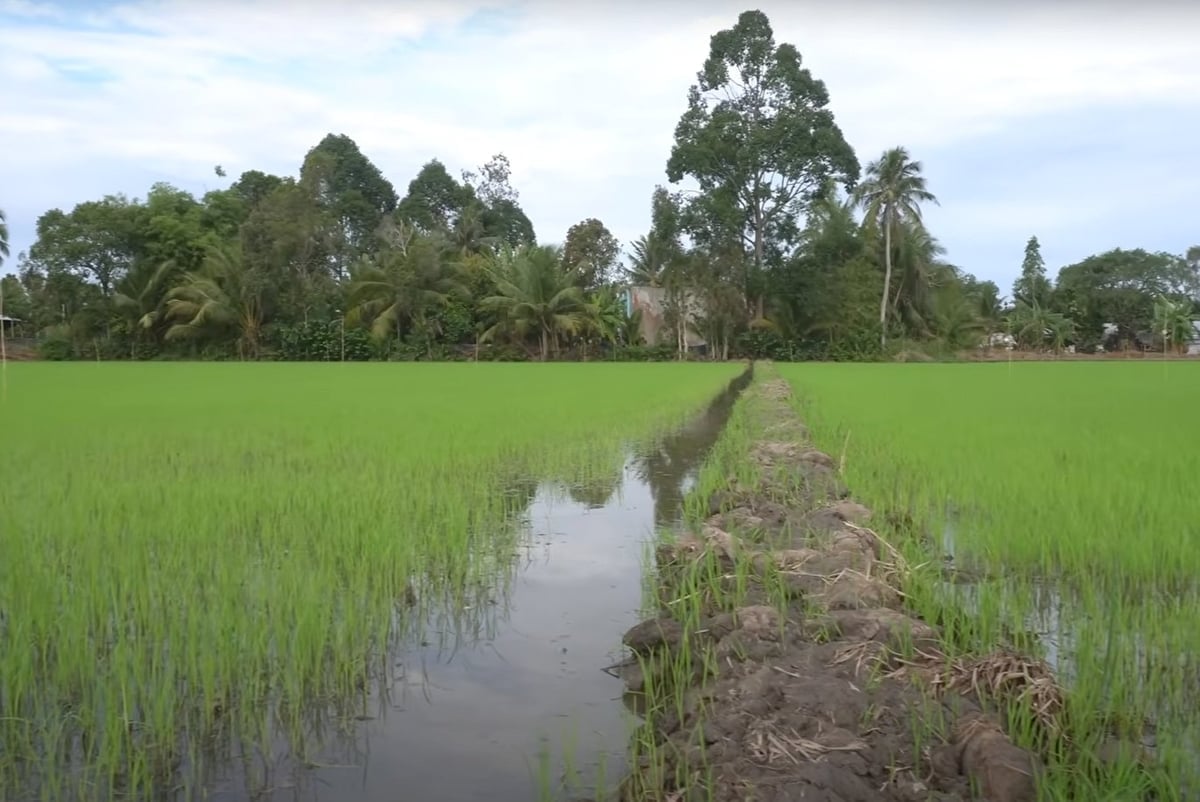
Regularly flooding rice fields causes greenhouse gas emissions. Photo: Minh Sang .
Meanwhile, in the Mekong Delta today, the degradation and incompleteness of the internal irrigation system is causing many places to be unable to bring water from secondary canals into the fields. Many places have internal canals to bring water into the fields but cannot drain the water.
Although the rice fields in the Mekong Delta are relatively flat, they still have different levels, making it difficult to ensure that the highest and lowest fields in the same field receive equal amounts of water. When irrigation still has to be done from one field to another, alternating wetting and drying is difficult.
According to Mr. Tung, alternating flooding and drying not only helps reduce emissions in rice production, save water..., but also helps rice plants grow better. Because when water is drained into the canals in the fields, the rice roots will have to grow deeper, leading to better rice growth, reducing the number of times pesticides are sprayed, and fertilizer use, thereby not only reducing production costs but also reducing greenhouse gas emissions.
Therefore, it is necessary to strengthen the irrigation system in the Mekong Delta to successfully apply alternating flooding and drying on a large scale to reduce emissions and help rice plants grow better. At the same time, a complete irrigation system in the fields will help transport rice in the fields more conveniently and easily.
Source: https://nongnghiepmoitruong.vn/tuoi-ngap-kho-xen-ke-kho-mo-rong-do-thuy-loi-noi-dong-chua-hoan-chinh-d784447.html







![[Photo] General Secretary To Lam and National Assembly Chairman Tran Thanh Man attend the 80th Anniversary of the Traditional Day of the Vietnamese Inspection Sector](https://vphoto.vietnam.vn/thumb/1200x675/vietnam/resource/IMAGE/2025/11/17/1763356362984_a2-bnd-7940-3561-jpg.webp)




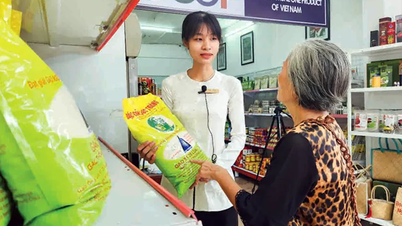
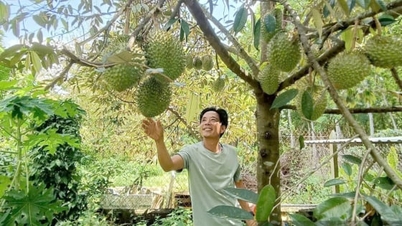


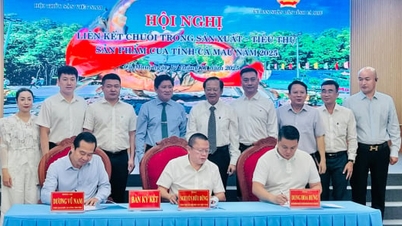
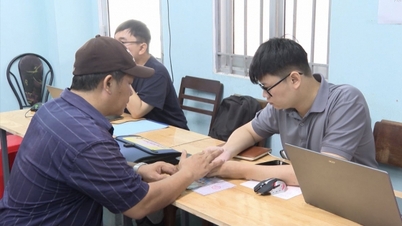


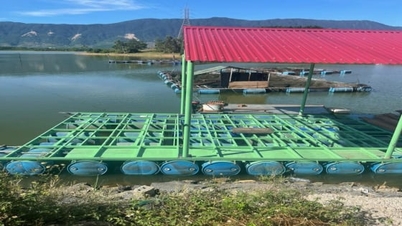
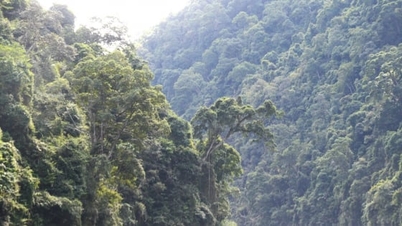





![35 years of building a high-quality cattle herd: [Last article] Continuing achievements](https://vphoto.vietnam.vn/thumb/402x226/vietnam/resource/IMAGE/2025/11/18/1763418782764_5239-anh-gia-trai-bo-o-ca-1-1-nongnghiep-175228.jpeg)
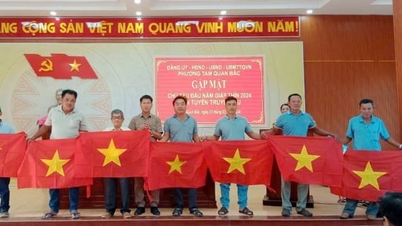
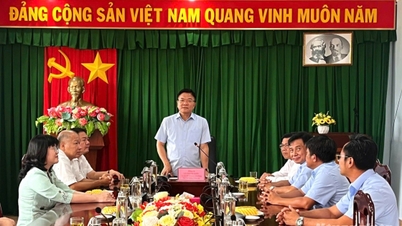
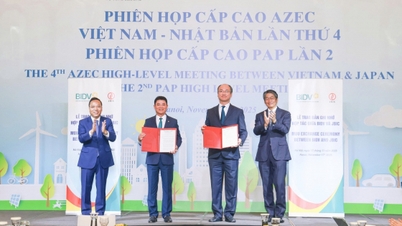




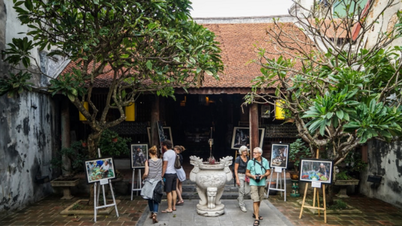
































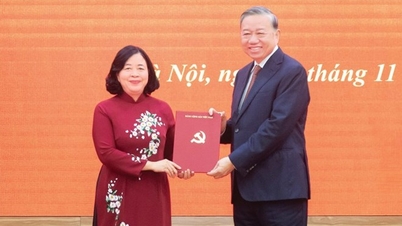

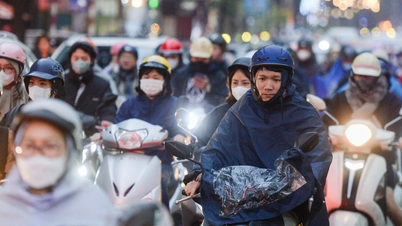
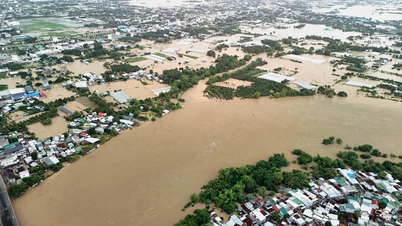
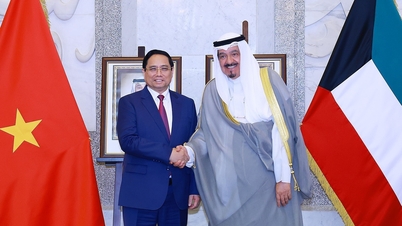














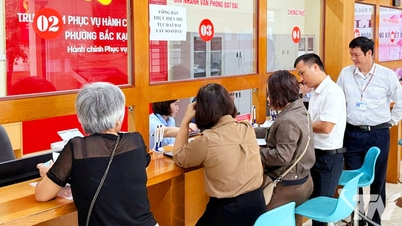

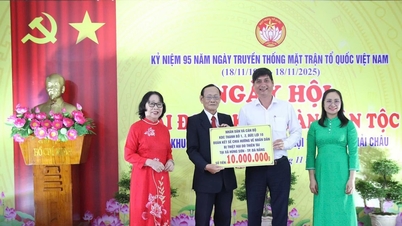



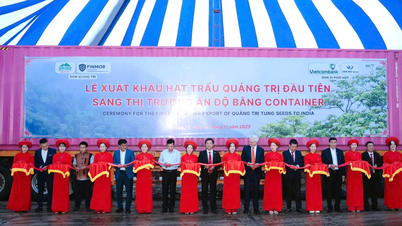











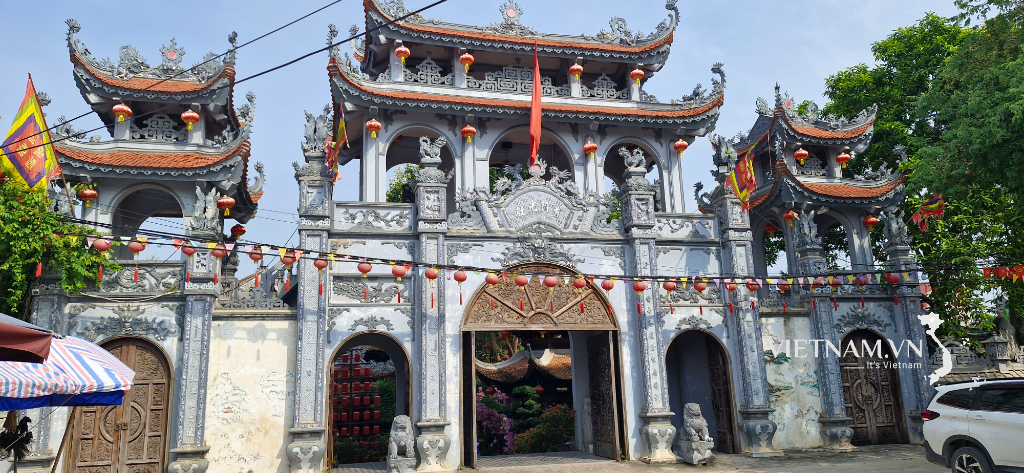

Comment (0)